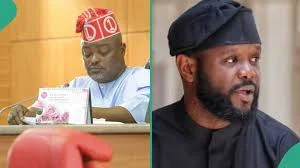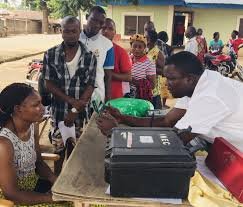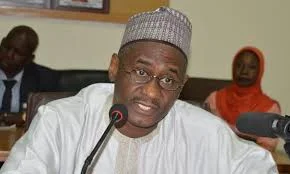It is said that those who fail to learn from the lessons of history are doomed to repeat the same follies. This maxim appears to be instructive for the Electoral Hub, which recently held a convening to reflect on the realities of Nigeria’s electoral process and the possible lessons learnt for the future. Beginning with the 2023 general elections and later dovetailing to the off-cycle elections in Kogi, Imo and Bayelsa, the Electoral Hub used the roundtable to throw up critical questions for stakeholders in Nigeria’s democratic project to ponder on, especially with activities already underway for the off-cycle elections in Edo and Ondo States. The Roundtable was convened as part of a project on Citizens’ Rights and Impact of Insecurity on Elections. The project was initiated with funding from the Open Society Foundations (OSF) to support the Independent National Electoral Commission (INEC) and the electoral process on election security through research.
According to the organizers, the “Citizens’ Rights and Impact of Insecurity on Elections” project, therefore, involved the conduct of in-depth research into aspects of insecurity and their impact on the 2023 general elections. The Electoral Hub deployed the expertise of renowned political scientists and election scholars, including Professor Adele Jinadu, Professor, Okechukwu Ibeanu, and Dr. Plangsat Bitrus Dayil. These renowned experts brought to bear their wealth of experience and knowledge to provide thorough treatment of aspects of insecurity in Nigeria. Specifically, Professor Jinadu provided an assessment of the impact of insecurity on INEC’s preparedness for the 2023 General Election. On his part, Professor Ibeanu took a critical look threat of electoral violence during and after the 2023 general elections, while Dr Plangsat gave insights on the subject of gender and inclusion and its impact on the 2023 general elections.
Chaired by former INEC Chairman, Attahiru Jega, other notable attendees include Professor Muhammad J. Kuna, Special Adviser to INEC and representative of the INEC Chairman, Prof. Mahmood Yakubu, Honourable Prince Adebayo Balogun, Chairman, House Committee on Electoral Matters, Hajia Amina Zakari, former INEC National Commissioner, and Regina Omo-Agege, former INEC Director. Also in attendance were notable academics like Professor Ogoh Olubo and Professor Victor Adetula, as well as civil society actors. The Director of The Electoral Hub, Princess Hamman-Obels, opened the roundtable with words of thanks to the Open Society Foundations (OSF), which funded the project. She emphasized the project decided to put the spotlight on citizens rights and the impact of insecurity on the 2023 general election in Nigeria because of the pervasive security issues in the country, as they affect historically marginalized groups and their participation in the electoral process.
Professor Ibeanu’s paper focused on the threat of electoral violence during and after the 2023 general election. The presentation included three anecdotes from previous elections to illustrate the impact of security or insecurity on election processes. Professor Ibeanu discussed the multifaceted nature of electoral violence and its relationship with insecurity, outlining three typologies: election-generated violence, election-amplified violence, and election-sustaining violence. He also distinguished between direct and indirect violence in elections, emphasizing the role of structural, cultural, and electoral management factors in contributing to violence. Additionally, the professor explained the efforts of the Independent National Electoral Commission (INEC) in managing election security, detailing a triangular structure of responsibilities and a three-concentric circle deployment strategy. The presentation concluded with a focus on the role of knowledge production, research, and the INEC Situation Room in addressing election security.
In his presentation, Professor Adele Jinadu, a member of The Electoral Forum, addressed the impact of insecurity on INEC election preparations in Nigeria. He discussed criticisms faced by INEC in the context of Nigeria’s complex electoral politics and external interference. Key points covered various aspects, including the binary language of Nigerian politics, concentration of power, types of violence, external influence, electoral preparation versus preparedness, the role of political parties, professional groups combating corruption, citizen vigilance, the role of public opinion and morality in law, and the collective responsibility of citizens to shape the government they deserve. Overall, Professor Jinadu’s presentation provided a thorough examination of the challenges in electoral preparations and insecurity in Nigeria, offering insightful suggestions for reform and citizen engagement towards a transparent and accountable political system.
In his presentation, Dr. Plangsat Bitrus Dayil addressed concerns raised by the Center for Democracy and Development regarding the strengths, weaknesses, opportunities, and threats (SWOT) of security needs during the 2023 elections, particularly focusing on persons with disabilities (PWDs). Dr. Dayil noted that survey results showed that 20.4% of 187 participants were PWDs, with 63.4% being women.
“While 100% registered for elections, only 91% obtained their PVCs. Challenges in PVC collection included multiple visits, difficulty locating polling units, and unprofessional behavior of staff. Security concerns deterred some from voting, with participants expressing worries about their inability to defend themselves.
“Factors impacting participation included disrespect for women, stigma against women candidates, difficulty accessing polling units, and fear of insecurity. Safety concerns for PWDs encompassed distance, discrimination, stigma, violence against female candidates, and lack of priority voting. Dr. Plangsat suggested monitoring mechanisms like electronic surveillance, deployment of trained personnel, community security, and mobile courts for arrests. She also mapped security issues in different geopolitical zones, detailing challenges and proposing recommendations to address security concerns facing women and PWDs.”
Subsequently, participants at the roundtable contributed questions and perspectives around the significance of addressing electoral violence in its foundational stages, particularly within the context of political party activities. They also called for building a strong foundation within political parties was considered crucial to reducing violence during elections. Another issue raised had to do with as a critical factor in electoral processes. Many participants expressed concerns about the lack of trust, especially in the impartiality of civil society actors. They also pointed out the issue of crimes committed during elections that often go unpunished. This lack of accountability was stressed as a significant concern that needed to be addressed.

























